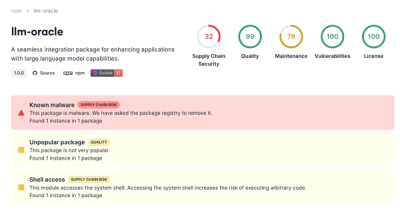
This is a plugin that only has a peer dependency to piral-core. What piral-blazor brings to the table is a set of Pilet API extensions that can be used with piral or piral-core.
The set includes an Blazor loader and converter for any component registration, as well as a fromBlazor shortcut together with some Blazor component coming in the Piral.Blazor.Utils NuGet package.
By default, these API extensions are not integrated in piral, so you'd need to add them to your Piral instance.
Documentation
As Blazor is quite a special technology (since its based on WebAssembly) there are some very special things to follow for integration. The result, however, could be worth it. As Piral gives you here a truly unique and wonderful way of building your application - modular, distributed, and with the fastest possible Blazor startup time!
Important:
We recommend building pilets for piral-blazor exclusively with the official template.
The template can be installed using the dotnet CLI:
dotnet new -i Piral.Blazor.Template
Then you can always apply the template in an empty folder:
dotnet new blazorpilet --piralInstance my-app-shell
where my-app-shell should refer to the name of the NPM package of your app shell. The --npmRegistry option is there, to cover cases where your app shell is not hosted in the standard NPM registry.
The following functions are brought to the Pilet API.
defineBlazorReferences()
Adds the URLs to additional DLLs that need to be referenced for obtaining the Blazor components. At best this uses require.resolve to get the URL from the bundler.
When you use the blazorpilet template you don't need to fill / use this. It is automatically used and filled with generated code. Only touch this one if you know what you are doing.
fromBlazor()
Transforms a standard Blazor component into a component that can be used in Piral, essentially wrapping it with a reference to the corresponding converter.
There is only a single argument, which refers to the name of the exposed Blazor component.
Usage
For authors of pilets
You can use the fromBlazor function from the Pilet API to convert your Blazor components to components usable by your Piral instance.
Example use:
import { PiletApi } from '<name-of-piral-instance>';
export function setup(piral: PiletApi) {
piral.defineBlazorReferences([
require.resolve('./My.Dependency.dll'),
require.resolve('./My.Components.dll'),
])
piral.registerPage('/sample', piral.fromBlazor('sample-page'));
}
Within Blazor components the Extension component referenced from Piral.Blazor.Utils, e.g.,
<Extension name="name-of-extension" />
Setup and Bootstrapping
For Piral instance developers
Using Blazor with Piral is as simple as installing piral-blazor.
import { createBlazorApi } from 'piral-blazor';
The integration looks like:
const instance = createInstance({
extendApi: [createBlazorApi()],
});
This will automatically download and include the necessary binary files for providing Blazor WASM support. The binary files will be taken from the Piral.Blazor.Core NuGet package.
By default, the latest version of the Piral.Blazor.Core NuGet package is downloaded. To change this set the PIRAL_BLAZOR_VERSION environment variable to the desired version.
License
Piral is released using the MIT license. For more information see the license file.








